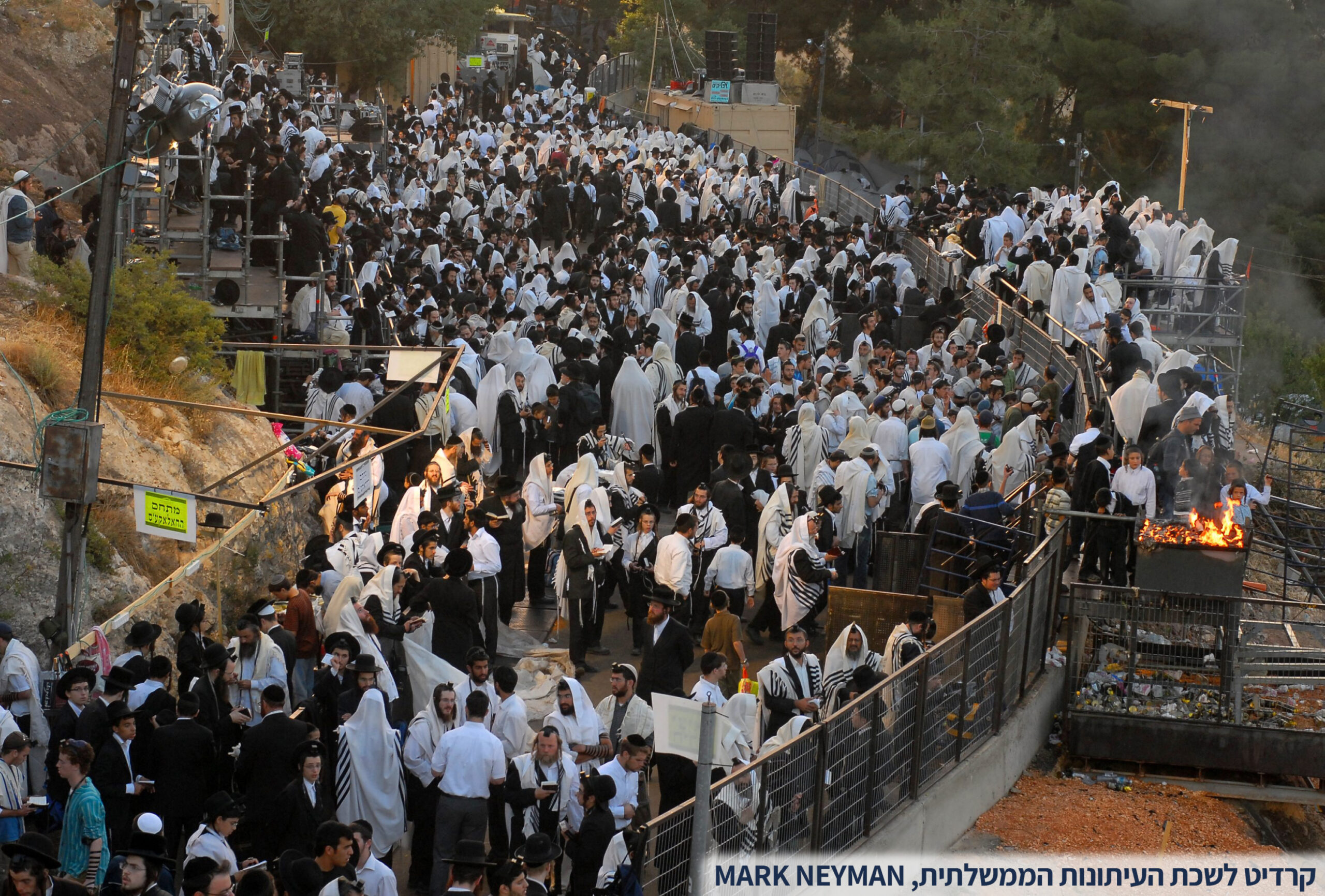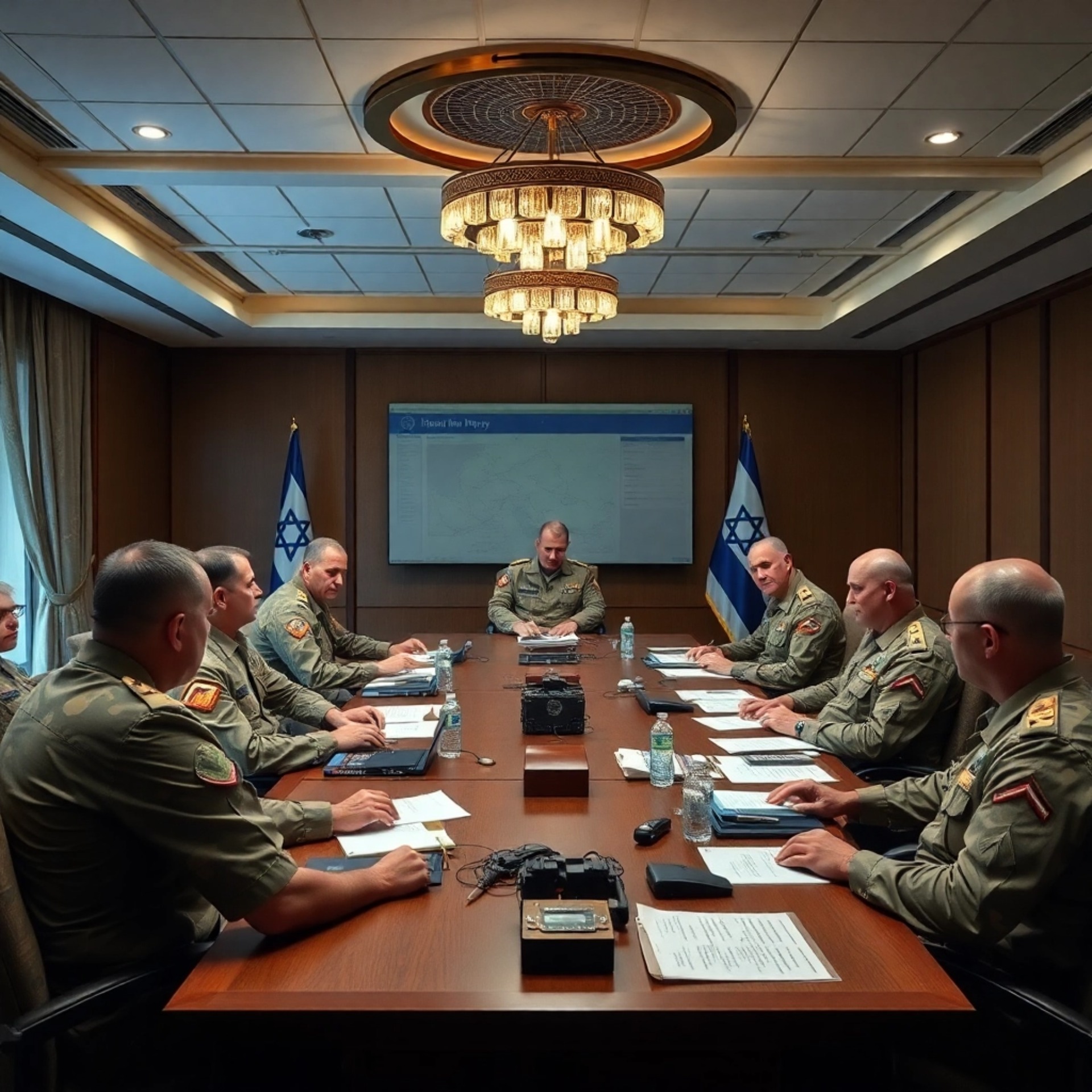Home Governance and Public Service Public Service Women in Leadership positions





The disaster of October 7 exacted a heavy toll — on the victims, their families, the military system, and nationally the heavy price was felt. Although women took and continue to take a significant part in the fighting, it became clear to us that women are still excluded from decision-making centers regarding the management of warfare in the State of Israel. Including a gender-diverse perspective is necessary for better handling of conflicts, as well as when promoting peace agreements — not just for the value of appropriate representation, but to integrate the gendered experiences associated with wartime — from women’s meaningful participation in combat, to the gender-based violence directed against victims, and everything in between. How can it be that women are good enough to fight on the front lines but have no place in the decision-making rooms? What can be done to promote more significant gender integration, and what will be its impact on the outcomes of the war and any agreement that may be signed afterward? Attorney Eden Farber and Dr. Tal Mimran answer these questions.
Wars and conflicts have severe consequences on the entire civilian population, without a doubt. Still, women are harmed in a particularly exceptional manner compared to the rest of the population, and harm against women actually becomes a real tool of war. For the Hutu tribe in Rwanda, rape was a way to promote the genocide of the Tutsi tribe (since tribal affiliation in Rwanda is determined by the father’s identity), and although it is on a different scale, on October 7, the harm to women was carried out with a similar purpose — to intensify fear among Israelis and to amplify the psychological terror effect of the attack. Nevertheless, women are often excluded from conflict management as well as from ceasefire and peace agreement negotiation processes. To illustrate, in 2020, out of all peace processes supported or participated in by the UN, women were represented in only 23% of them. In the cases where women were included in decision-making, research shows that the resulting peace agreements were more stable, had higher success rates, and had a significantly more sustainable future.
(1) The impact of war on women
As stated, women and girls are affected by wars in unique and disproportionate ways. This stems, among other things, from the fact that conflicts cause food insecurity, forced displacement, or harm to access to healthcare services, since historically during wartime, most women stay to protect the home front or flee to safer areas with children and elderly people who cannot care for themselves.
Moreover, women — civilians and soldiers alike — become targets for gendered war crimes, including human trafficking, sexual slavery, and brutal sexual violence. Often, there is a unique aspect to women that makes them a target. Even here in Israel in 2023, this painful understanding was reaffirmed. Testimonies from the horrific massacre day of October 7 revealed shocking and unimaginable acts of violence — brutal murders accompanied by abuse, destruction of families, and over 240 individuals — men, women, elderly, and children — kidnapped by the enemy, their status still unknown. Among the cruel means employed against the victims — murdered, kidnapped, and even survivors — was also severe sexual violence. In a letter signed by dozens of international law and human rights experts, it was noted that, in particular, the massacre events included gendered crimes against humanity targeted specifically at women and girls.
(2) Stories of heroism of women
Amid the pain and mourning, stories of heroism also emerged, where ordinary civilians took matters into their own hands and saved their own lives or those around them. In many cases, they were courageous women who defended others with their own bodies.
For example, according to reports, Inbal Lieberman, 25 years old, the Security Coordinator (“Ravshatzit”) of Kibbutz Nir Am, convened the emergency response squad even before she knew about the terrorists’ infiltration into Israeli territory, upon hearing various sounds from rocket barrages and trusting her “gut feeling.” Inbal made an extraordinary decision to open the armory, arm the squad members, and station them around the kibbutz. Thus, Inbal and the emergency squad managed to neutralize those trying to infiltrate the kibbutz until security forces arrived.
Another inspiring story is that of Rachel Edri from Ofakim, whose story became one of the major symbols of the massacre day. Rachel managed to stall the terrorists who broke into her home intending to kill her. With great composure, Rachel spoke to their hearts, offered them coffee and cookies, and delayed them long enough until security forces managed to rescue her and her partner hours later.
Female soldiers and combatants of the IDF also acted determinedly and bravely from the first moments of the attack. Gaza Division’s female lookouts operated the fighters fighting the terrorists during the initial infiltration moments with “sharpness, professionalism, and vigilance,” as stated by Minister Galant. At the same time, female fighters from the Caracal Battalion engaged in difficult and prolonged battles over the southern towns. Many other stories of female soldiers and officers who defended their fellow soldiers, nearby civilians, and acted determinedly and accurately made it clear to the Israeli public that there is nothing to fear from women on the front lines — quite the opposite.
Despite this, the only gender-related reference in Israeli law in this context is one benefit: women whose spouses were drafted into reserve duty are entitled to an hour less of work per day, according to the Women’s Work Law.
Around the World They Have Learned the Lesson
Already in 2000, the Security Council adopted a groundbreaking resolution that changed the discourse regarding the role of women in conflict situations, known as Resolution 1325 on Women, Peace, and Security.
The main principles of the resolution include increasing women’s participation and representation in all decision-making centers, focusing attention on the special protection needs of women and girls during conflict, integrating a gender perspective in post-conflict situations, integrating gender perspectives in UN reports and missions, and integrating gender perspectives in the training and operation of UN forces and personnel.
The Security Council, and subsequently the broader UN, urged countries to increase women’s representation at all decision-making centers in national, regional, and international institutions, and in all mechanisms for the prevention, management, and resolution of armed conflicts; to take special measures to protect women and girls from gender-based violence, especially sexual violence in conflict situations; to incorporate gender perspectives in peace negotiations or the implementation of peace agreements, acknowledging the unique needs of women and girls during return, resettlement, rehabilitation, reintegration, and post-conflict reconstruction efforts, including supporting local women’s peace initiatives and integrating women into all peace agreement implementation mechanisms.
Over the years, various steps have been taken worldwide to promote these principles. The most common method has been through the adoption of a National Action Plan (NAP). Today, 107 countries (55% of all UN member states), including the United States, Sweden, the United Kingdom, New Zealand, South Africa, Germany, as well as African and Middle Eastern countries, have adopted a National Action Plan to implement Resolution 1325, with some having already adopted multiple plans.
It should be noted that Israel was one of the first countries to sign Resolution 1325. Nevertheless, despite years of follow-up discussions by the Knesset Committee for the Advancement of the Status of Women, we have yet to see the adoption of a national action plan in this field.
Israel is in the midst of one of the most significant wars for its security in decades. In the past month, many decisions have been made, some critical to our lives and the fate of our soldiers and forces, by an extremely talented group of people who share one common characteristic — they are not women.
Indeed, there is one woman in the political-security cabinet, but in the narrower war cabinet that actually manages the fighting, there sit the Prime Minister, two ministers, the Chief of Staff, and two observers — all men. Thus, decisions are being made without hearing even a single woman’s voice.
It is very possible that some have gotten used to the fact that in the current government, there are only six female ministers, and only 29 female Members of Knesset out of 120. This underrepresentation is a failure that has existed for years — already in 2014, the State Comptroller noted the underrepresentation of women in senior management positions and described it as a problem of “governments of Israel for generations.”
Despite the passage of time, it seems we are only regressing. Upon the establishment of the 37th government, in response to a petition filed on the matter, the Supreme Court issued a conditional order requiring the state to explain why no female CEOs were appointed in government ministries and why there are no guidelines for implementing the duty of fair representation of women in trusted positions.
There are many reasons for the need to integrate women into decision-making, especially during wartime, with two particularly prominent justifications. First, the unique and disproportionate impacts on women, as the human tragedy of October 7 made painfully clear the dangers facing women during armed conflict and brutal terrorist attacks. It is appropriate and important that there be female representation in decision-making, both so they can best express the problem and so that they are part of choosing possible solutions.
Second, a gender-diverse perspective generally enables a holistic view of all conflict circumstances and broadens the range of ideas and ways of thinking about how to deal with the challenge. As noted above — and unsurprisingly — research proves that the inclusion of women in the management and resolution of conflicts leads to more stable and sustainable outcomes. Research examining peace agreements signed worldwide between 1989 and 2011 found that peace agreements involving women had a 35% higher chance of lasting at least 15 years compared to agreements without women’s involvement.
Moreover, practical evidence also proves the importance of female representation in senior positions, especially in emergencies, even in Israel. For example, during the COVID-19 crisis, a special cabinet was established to handle the health emergency, as well as an expert team from the National Security Council. Upon their formation, a petition was filed by 13 civil society organizations regarding the lack of adequate female representation, as out of 31 members of the expert team, only two were women. During the Supreme Court hearings, it was determined that integration is important, especially in emergencies, for considerations of proper representation and, more broadly, logic and common sense.
As part of efforts to correct the situation, in 2022 a report was published on the integration of gender perspectives during the formulation of national policy recommendations by the National Security Council in various emergency situations, but unfortunately, it is still largely unimplemented.
Today, the State of Israel stands at a historic crossroads. We are still digesting, mourning, and grieving the loss of 1,400 of our sons and daughters in the deadliest terrorist event in the history of Israel, while also dealing with the ongoing captivity of over 240 citizens and soldiers, elderly and children, who have been held hostage by Hamas for over a month. In addition, although the exact numbers are unclear, it seems that thousands of Gaza residents have been killed so far in the fighting.
The Iron Swords War is receiving immense international attention, and it seems we are heading toward a new reality in the Middle East.
As part of the lessons of the war and the effort to rebuild a strong national identity, it is important to change our approach to leadership representation. Women must be appointed to all relevant decision-making centers related to conflict management, whether in security or political bodies. It would also be wise for the government to adopt a National Action Plan to implement Resolution 1325, ensuring the meaningful integration of women into leadership, which could improve the chance of achieving long-term regional stability.
The experience of countries and international organizations, as well as empirical data, proves the obvious — when women are involved in conflict management and resolution, the results are more stable, fair, and sustainable.
Therefore, it is crucial that when the time comes to assess the management of the conflict, it will be done with appropriate female representation and with the meaningful integration of gender-diverse perspectives.




Hannah Senesh
"There is only one thing that cannot be defended against - indifference."
Hannah Senesh

"There is only one thing that cannot be defended against – indifference."
Hannah Senesh